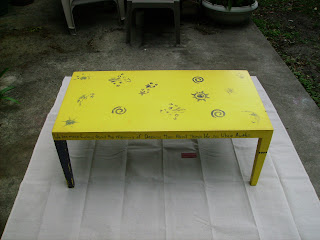While modern poets find outlet on the net, I tend to look at classic poetry found in hefty volumes and anthologies. Books where Lewis Carroll shares space with John Donne, Elizabeth Barrett Browning mingles with Walt Whitman. Crisp white paper, like fresh albino lettuce crinkles and flutters while I ponder the heavy words of literary giants.
In poetry it is often easier to find an expression of what you are feeling than try to come up with your own words. In poetry the voice of the poet speaks not just to the reader but for the reader, offering solace in expression and joy in thought. Overwhelmed with love? Turn to Shakespeare. Overcome with lust? Robert Herrick readily springs to mind. Concerned with mortality? Christina Rossetti tells it like it is. Question of faith? George Herbert can help you there.
With that in mind I present two of my favorite poems.
The first, “How Did You Die?” by Edmund Vance Cooke is less about death than one might imagine. When ever I feel backed in a corner, trapped by a decision, or faced with major setback, I think of this poem and remember that it isn’t what life throws at you; it is how you handle it that matters.
I first encountered the second poem, “There Will Come Soft Rains” by Sara Teasdale, in a short story of the same name by Ray Bradbury in my 10th grade English class. The poem ought to remind us that we are fallible and our actions will have consequences for us, but the Earth, our only home, will continue far longer than we care to imagine. It is not necessarily a “hopeful” poem, but it leaves in me the sense that there is a possibility for renewal, of starting the cycle all over again.
Enjoy.
How Did You Die?
Did you tackle that trouble that came your way
You are beaten to earth? Well, well, what's that?
And though you be done to the death, what then?
There Will Come Soft Rains
There will come soft rains and the smell of the ground,







 We also got a poem about little handprints and a yellow towel with a “dirty” handprint on it.
We also got a poem about little handprints and a yellow towel with a “dirty” handprint on it.









